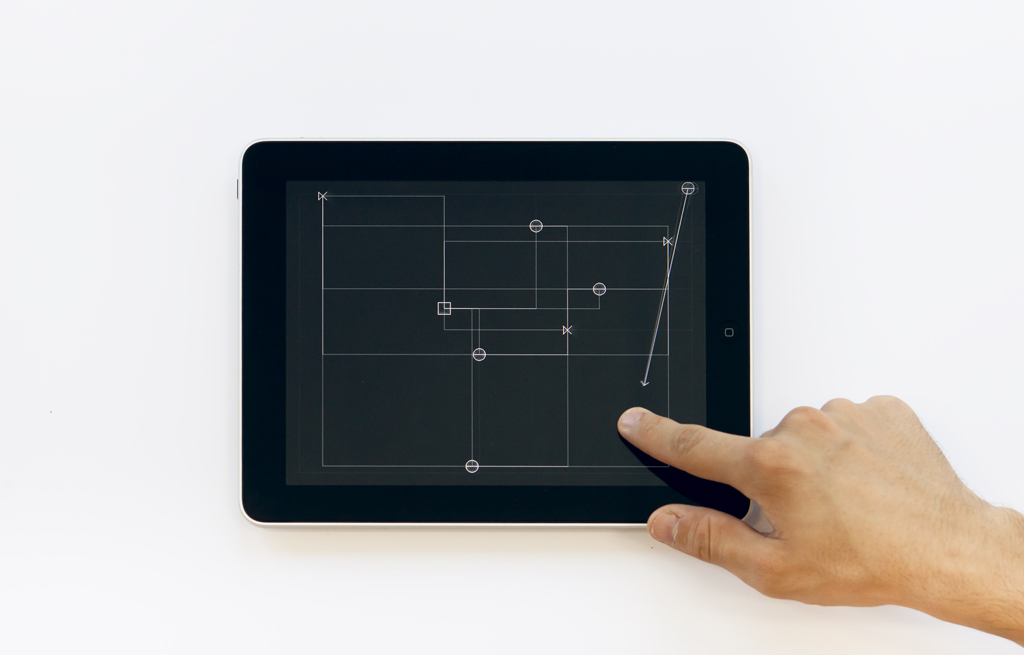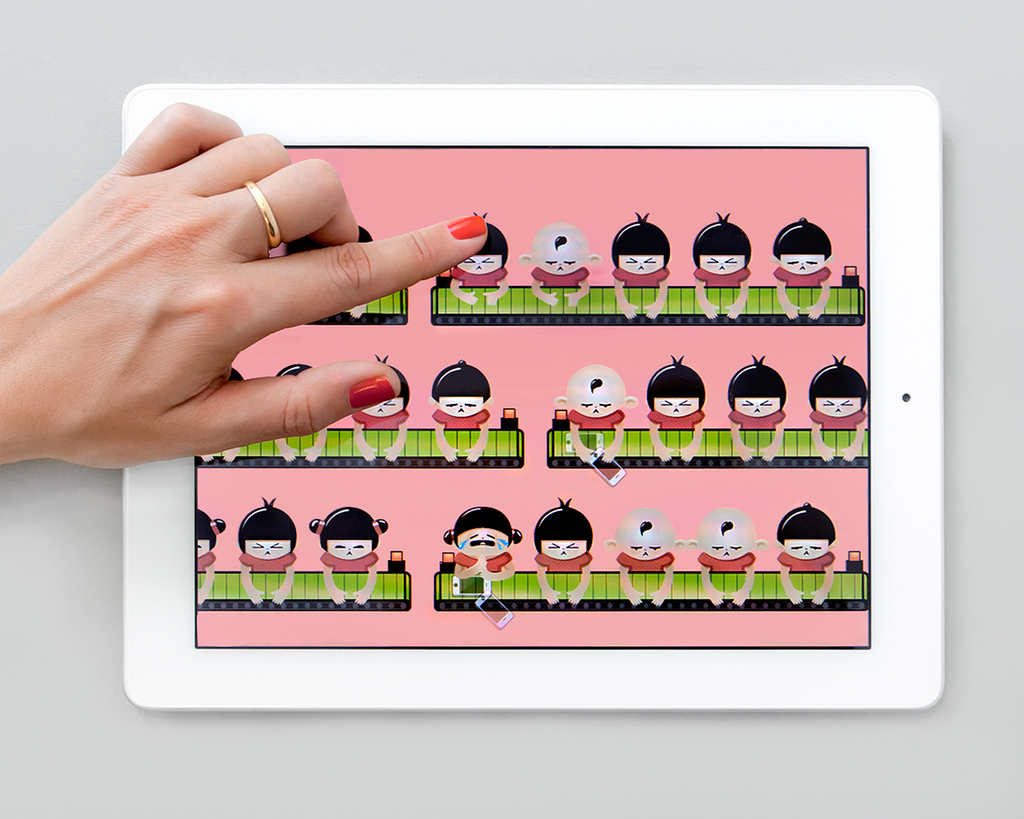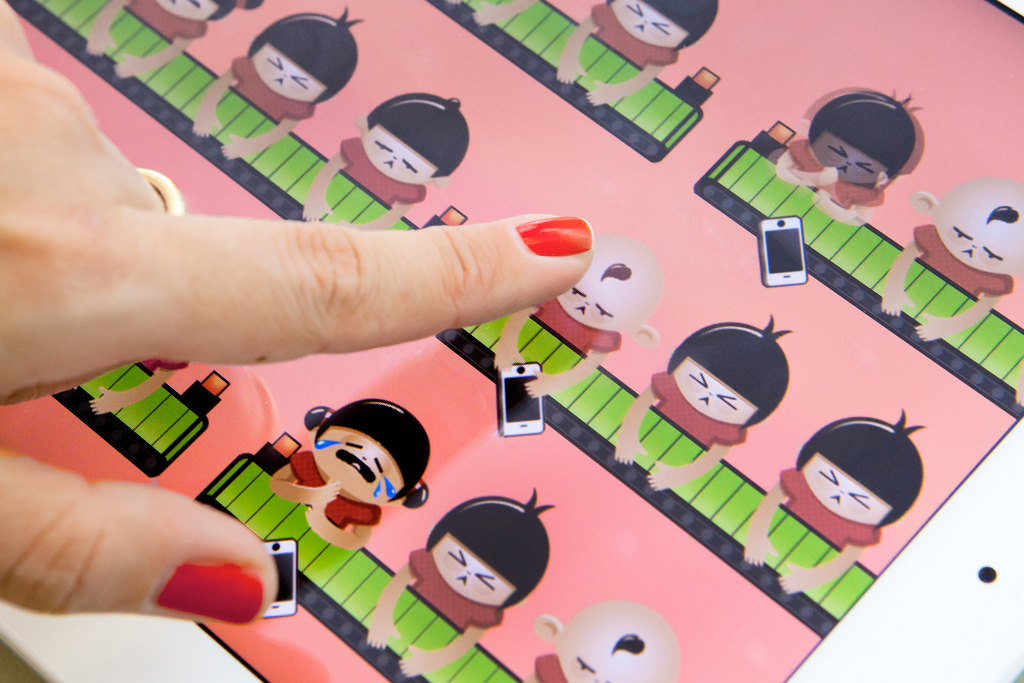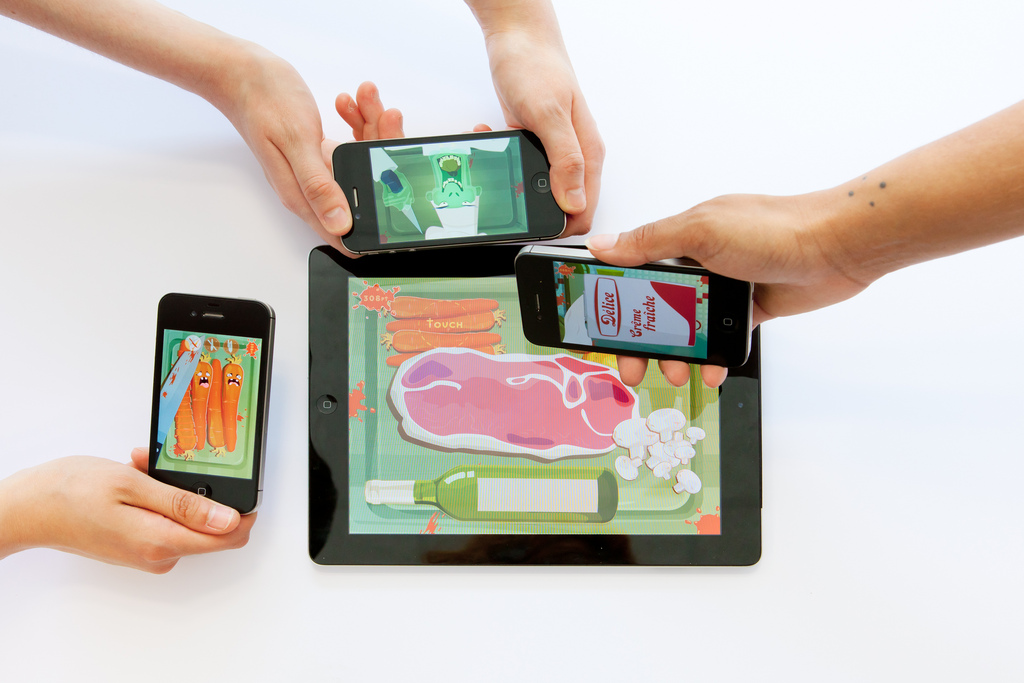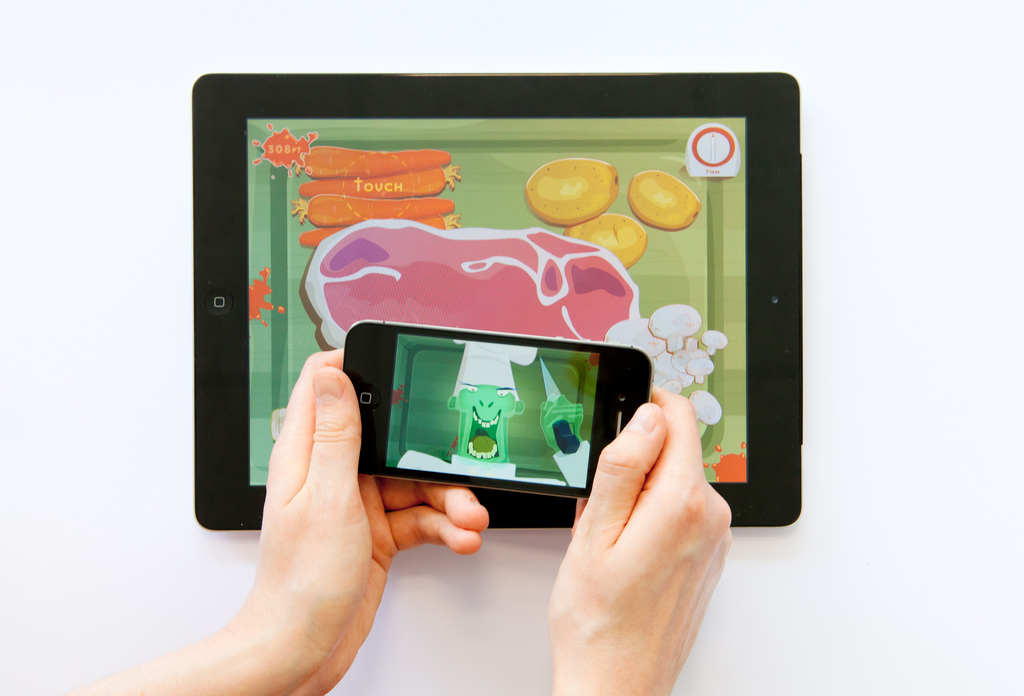- Workshop: Unterplay
- Project Leads: Annelore Schneider & Douglas Edric Stanley
- Students: Marion Bareil, Fabien Duperrex, Julia Garcia-Skrebneva, Yuan Li, Jostna Kureth, Nadezda Suvorova
- Institution: Master Media Design, Haute École d'Art et de Design, –Genève
- Exhibition information: cf. Swiss Game Lounge
Unterplay was a workshop organized by Annelore Schneider and Douglas Edric Stanley as part of preparations for the Swiss Game Lounge at the London 2012 Olympics.
The concept of Unterplay was defined in order to rethink the idea of “casual gaming” and return some æsthetic and ludic nobility to the term. Instead of the idea of “casual”, we instead explored the idea of minimal or reduced play, i.e. play diminished to such a state so as to almost become no-play. The play underneath the play. The opposite of Überplay. What happens when you remove almost all of the interface out of a game, all of its gameplay, all of its social interactions, and yet it still remains a game? That question of the limit of almost — almost play, almost not-play — lead us closer to our idea of Unterplay without necessarily requiring a strict definition.
One of our models was that of Solitaire, which is also named Patience because of its temporal qualities: a game that does almost nothing else than to occupy your time. And often, games for when you've got nothing to do.
Oko, Nadezda Suvorova, developed in OpenFrameworks by Pierre Rossel & Nadezda Suvorova
In fact one of best examples of Unterplay was developed in the workshop itself, via the insanely successful game designed by Nadezda Suvorova, Oko which has received various awards, exhibitions, and downloads through the AppStore. And yet, the game itself, as a game, is nothing more than a sort of visual puzzle, which still makes it something like a game but not a particularly complex one. And yet the game is not only engaging, but even difficult. So as the positive public reaction attests, there is something more in the proposition than just the puzzle aspect of the game, which probably has as much to do with the interactive audiovisual experience taken as a whole, as any specific ludic element.
Magnetics II, Fabien Duperrex, developed in OpenFrameworks by Fabien Duperrex & Douglas Edric Stanley
Foxx Keedz, Julia Garcia-Skrebneva with Yuan Li, developed in OpenFrameworks by Julia Garcia-Skrebneva
Monster Chef, Marion Bareil & Jostna Kureth
Monster chef is a party game that deals with cooking. From 2 to 6 players. The goal is to achieve a recipe together in a limited time with the highest score. Players are cooks, have one iPhone each and follow the instructions of the Chef that plays with an iPad.
For more information visit the Monster Chef website.
